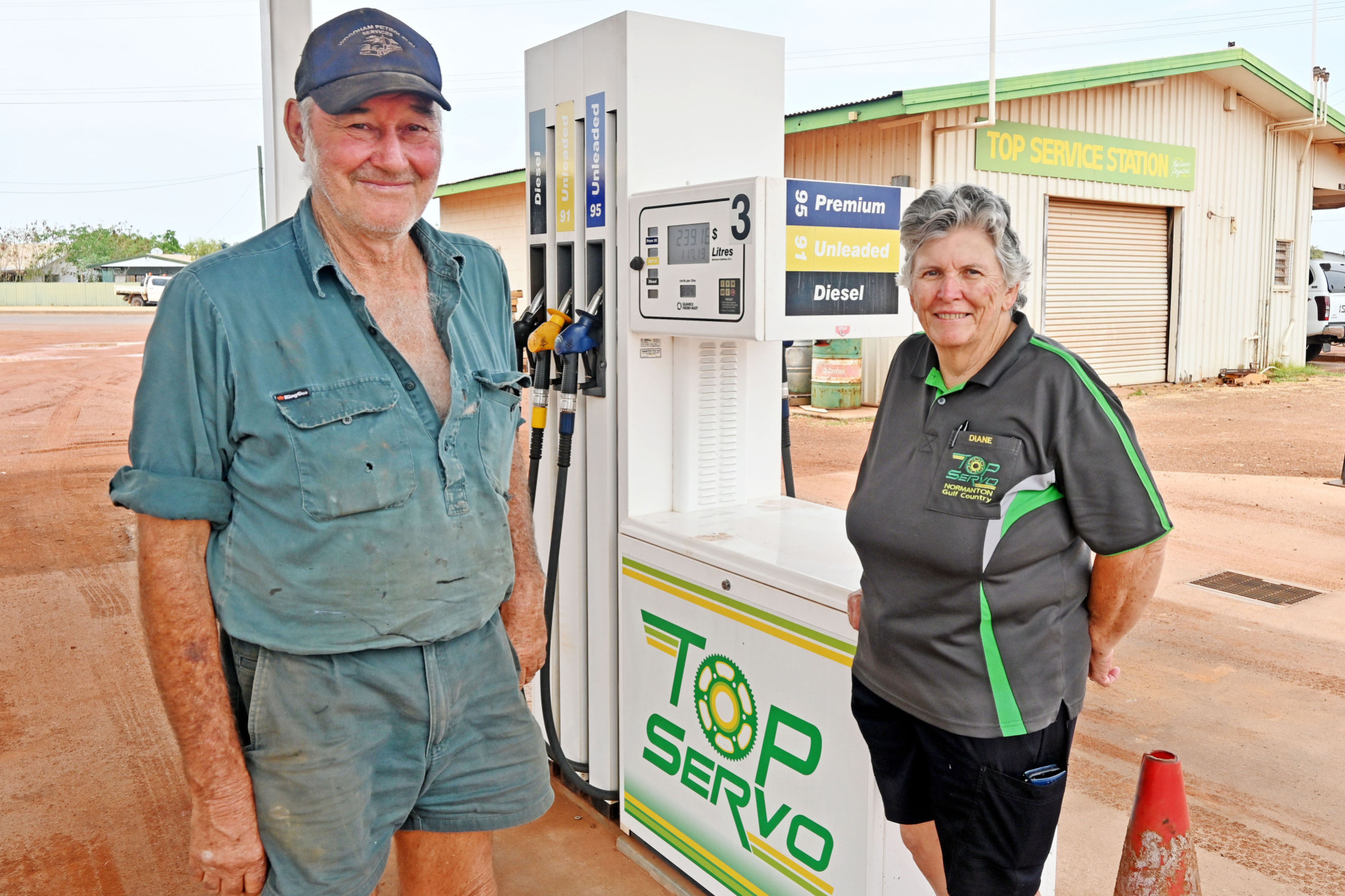Business
26 November, 2024
Business calls for NAIF limit to be dropped after big banks reject loans
Normanton servo owner Wayne Reeves says he's a victim of postcode discrimination.

There is a faded corner on the shed wall at his Normanton petrol station where Wayne Reeves listed the banks that had declined his business loan proposal.
Over the course of almost four years of meetings with bankers, the list of rejections grew to cover the big four banks, two rural banks and the Northern Australia Infrastructure Fund (NAIF).
The NAIF could not even consider Wayne’s $1 million loan proposal because it only provides loans between $5 million and $50 million in Queensland.
Each time he was declined for a loan, following weeks or even months of negotiations, he would scrawl the name of the financial institution onto the shed.
Wayne is fond of repeating that his Top Service Station in the centre of Normanton was established at the same time Australia’s currency changed from pounds to dollars, during the mid-1960s.
But despite Wayne and his father-in-law Jack operating a successful business for more than half a century, when a decision was made to expand the business in preparation to pass it on the next generation, there was nothing but refusal from Australian banks.
“You go to the bank and want to talk to someone in person – someone local who understands the region,” he explained to North West Weekly.
“But you end up talking to some kid in an office in Melbourne who just punches the postcode into a computer, and it spits back up that the loan is unviable, and you are declined.
“It is postcode discrimination.”
Wayne had sought about $1 million to build a fully-functioning roadhouse, complete with a large workshop, cafe and workers’ accommodation.
After refusal from the banks, Wayne drew more than $300,000 from his superannuation to pay for a vastly reduced expansion.
Aged over 70 now, well past the typical age of retirement, Wayne has less than $13,000 remaining in his super account, forcing him to continue working and unable to pass the business operations fully to his son as he had originally intended.
His wife Diane drew more than $80,000 from her superannuation to also help fund the business expansion.
Wayne has demonstrated his ability to cover the costs of a loan repayment through a financing agreement that enabled him to triple the number of bowsers at the service station.
He agreed to a five-year repayment plan under a small-scale finance agreement with a fuel distributor.
Wayne – whose business sells more than 2.5 million litres of fuel each year – is on track to have paid back the loan ahead of time, next year.
“It shows we are making money and are able to cover loan repayments,” he said.
“It shows we shouldn’t have been refused all those business loans in the first place.”
NAIF currently has 32 projects on its books with an independent review underway to determine its administration path going forward.
Amendments to the NAIF were proposed in 2021 that would enable localised partnerships with regional financiers to provide funds between $1 to $10 million for small scale proponents. However, these partnerships have so far only been arranged with the Northern Territory government.
A similar partnership with the Queensland government has yet to be finalised.
Carpentaria Shire mayor Jack Bawden said he believed access to small-scale loans was crucial to expanding the economic potential of Gulf communities.
Cr Bawden said the example of Top Service Station revealed why the NAIF needed to enable small-scale infrastructure loans in Queensland, which would allow smaller enterprises to attract the needed funding to expand, employ more people and help fuel the Gulf economy.
“If the NAIF was to make smaller loans available and it could be demonstrated that these small businesses had the capacity to pay the loans back in five or ten years, then it would prove to the big banks that these business loans are a viable option,” he said.
“The Gulf is littered with these small and medium businesses – they drive our economy – they employ skilled people who bring their families to live here to attend our schools.
“Even if the NAIF put aside $10 million or $20 million to trial these smaller loans, they would soon see it is worthwhile.
“The NAIF wants to hand out $50 million loans or more – well no one in the Gulf wants that kind of money – the only businesses that want that are big businesses, and they are probably foreign companies.
“These small loans would support local families trying to have a go and build something to improve service options in our community.”